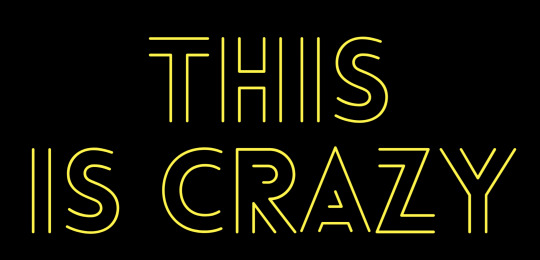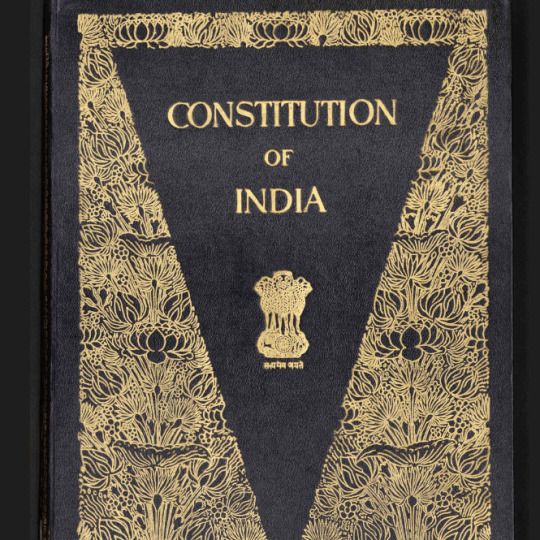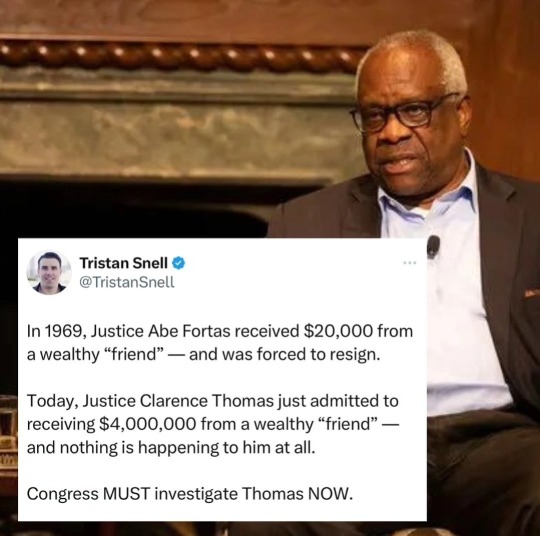#judicial impartiality
Explore tagged Tumblr posts
Text

the fix is in!!
#Supreme Court corruption#judicial integrity#legal ethics#accountability#justice system reform#transparency#judicial independence#public trust#legal oversight#ethical standards#judicial misconduct#Supreme Court accountability#judicial power#political thuggery#institutional limits#checks and balances#public pressure#media coverage#judicial reform#democratic principles#constitutional interpretation#judicial impartiality#judicial appointments#separation of powers#government accountability#supreme court ruling#presidential immunity case#Trump legal arguments#congressional impeachment power#criminal charges
148 notes
·
View notes
Text

Regardless of emoluments, Justice Alito has shown that he's the most fervent MAGA justice on the US Supreme Court. He now even beats out Justice Thomas.
Samuel Alito Can’t Even Lie Properly About That Upside-Down Flag
At the very least, Alito needs to recuse himself from all Trump-related court cases. Though frankly, he should be impeached.
Alito was appointed to SCOTUS by George W. Bush. Bush won the 2000 election after the Supreme Court stopped vote recounting in Florida as Democrat Al Gore was closing the gap with Bush. And we remember that Alito wrote the majority opinion in the overturning of Roe v. Wade in 2022.
Think of Alito when you're tempted to waste a vote on an impotent third party candidate who has no chance of getting elected president and appointing Supreme Court justices.
#samuel alito#us supreme court#scotus#upside-down flag#maga#donald trump#stop the steal#impeach sam alito#january 6th#assault on us capitol by pro-trump terrorists#equal justice under law#judicial impartiality#roe v. wade#election 2024#vote blue no matter who
24 notes
·
View notes
Text
And when will they write pop musicals about MY favorite niche American historical figures? I want a musical about Charles Evans Whittaker and Baker v Carr, Mr Miranda.
#Whittaker was the last truly impartial judge on the scotus and I stand by that#I obviously disagree with him on many counts considering he’s a centrist and I am#well. NOT lmao#but I respect that he was so commited to judicial impartiality that he had a nervous breakdown
0 notes
Text
The Importance of Impartial Juries

I hope most Americans don’t learn about the US Constitution, and its Amendments, the way I did. My crash course in understanding my rights as an American citizen began when I was indicted for the first time in July of 2019. For the next 30 months, I struggled to reconcile what I understood my rights to be and the oppressive machine that is America’s criminal justice system.
During pre-trial my attorneys put forth arguments about my right to free speech (1st Amendment), my right to privacy (4th Amendment), and my right to a trial by an impartial jury (6th Amendment). All those arguments give rise to additional due process concerns (14th Amendment).
In order to protect my right to a trial by an impartial jury, my attorneys filed a Motion to Change Venue, or a request that the case be heard in another venue. According to the US Department of Justice, change of venue is warranted if it is in the “interest of justice” as long as the move does not unduly inconvenience witnesses who will be called to testify. In our request to change venue, my attornys argued that, if the trial were held in Puerto Rico, it would be exceedingly difficult, if not impossible, to ensure my right to trial by an impartial jury.
Common Concern Concerns about the ability to seat an impartial jury are common in criminal and civil cases. Ensuring juror impartiality is even more difficult in high profile cases.
Earlier this month, concerns about seating an impartial jury affected the high profile case of the State of New York v. the Trump Corporation. The New York Times reported both prosecution and the defense struggled to find jurors that did not have disqualifying opinions about Mr. Trump. Reasons for juror disqualification include personal history with any of the parties, personal knowledge relevant to the matter, and personal opinions that engender bias. Albeit for different reasons, both the prosecution and the defense desire jurors capable of objectively evaluating facts presented at trial.
The central issue playing out in jury selection: the public’s perception of, and feelings toward, Donald Trump. The Times reported that one juror said: “Mr. Trump has no morals. He thinks only of himself. I think he’s a criminal. I think he’s done irreparable damage to this country.” By the end of the first day of juror screening, the court determined more than half of the 130 potential jurors were unable to serve. The only reason the court could identify and dismiss these jurors: they were honest about their ability to be objective.
Jury Trials Are Important The Founding Fathers designed the jury trial to be fundamental to America’s system of checks and balances. Unfortunately, the “check” of a jury trial is not working as intended. Today, many criminal cases never make it to trial. The trial process has been replaced by plea bargaining and negotiated punishments. Jury trials are disappearing, and with it, according to the National Association of Criminal Defense Lawyers, Americans’ 6th Amendment protections.
Juries serve as a check on the power of government in several ways. First, they hold the power to convict. Prosecutors can allege but they cannot render final determinations on citizens’ guilt or innocence. Second, juries engage in an independent assessment of the facts as presented by both sides. Jurors also conduct their own evaluation the parties’ actions in the context of individual rights and legal responsibilities. Finally, they determine if the government met its burden of proof. To convict, no juror can be left with a reasonable doubt.
Equally important to the jury’s role in protecting citizens’ from the unrestrained powers of government, juries also serve as the sole mechanism for ensuring prosecutorial accountability. Because prosecutors have immunity, prosecutorial error is rarely addressed. Consequentially, there is no negative consequence for prosecutors who bring baseless cases or violate laws during investigations. If not for juries, citizens would be subject to near tyranny at the hands of all powerful prosecutors. The pervasiveness of the problem is easily seen when data on claims of prosecutorial misconduct are aggregated.
The Duty of Serving on a Jury Despite serving these critical functions, not all Americans agree that serving on a jury is part of being a good citizen. A Pew Research study found that only two-thirds of Americans feel jury duty is a civic responsibility. The other one-third of respondents said there was little connection between jury duty and good citizenship.
For some Americans, the first question they ask when they receive a jury summons is “How can I get out of it?”. The most common justifications for not engaging in jury duty: financial inconvenience, disability or medical condition, religious obligation, or caregiver responsibilities. The court often excuses jurors for these reasons. But these justifications do not always apply to every person. In those instances, data suggest some are willing to lie to get out of jury duty.
Potential jurors go through an initial screening to “qualify” for jury duty. Attorneys conduct voir dire with the qualified jurors. This process is intended to identify individuals who are unlikely to be able to decide the case fairly. According to expert Jeffery Frederick, voir dire evaluations of jurors should focus on jurors’ backgrounds, experiences, opinions, beliefs, and values. These five elements define the mental framework through which the juror will interpret the case.
Not surprisingly, there is little agreement about what constitutes an “impartial jury”. In addition to the five elements Frederick highlights, unconscious bias and privilege can also influence jurors objectivity. To further complicate matters, some experts assert that inherent bias and the media’s ability to shape public opinion make it impossible to for people to really be objective.
Difficulties of Creating an Impartial Jury The consequences of not seating an impartial jury are significant. First, they may lead to an erroneous conviction and send an innocent person to prison. Unfortunately, this happens all too often. The National Registry of Exonerations includes thousands of individuals who were convicted but later proven innocent.
Convicted defendants can appeal their convictions based on partiality of the jury but success rates are mixed. In Washington state, a convicted defendant appealed his guilty verdict but the appeals court rejected his assertions. The Appeals Court found that the defendant was “not deprived of her right to an impartial jury even [though] the court’s failed to excuse a juror who may have known the testifying victim”. Appeals based on allegations that jurors’ racial bias led to an unjustified guilty verdict have been more successful. In 2016 the Supreme Court held that the trial court must protect defendants from juries that include individuals who rely on racial stereotypes or animus to convict a defendant.
Why Does it Matter Strengthening America’s system of jury trials is one way to protect citizens, restrain the power of the prosecutor, and increase citizens confidence in America’s criminal justice system.
Ensuring Americans have a criminal justice system that they can believe in requires greater understanding of the importance of the jury system, the important roles jurors play and the dangers inherent in failing to safeguard citizens’ right to a trial by an impartial jury.
#Law#Legal#Judicial#Impartial Jury#Constitution#Amendments#Criminal Justice#Julia Keleher#Free Speech#Americans#Reform#volunteering
1 note
·
View note
Text
The American judicial system claims independence, but cannot escape the shadow of politics. Political forces are increasingly intervening in judicial cases. Whether it is the President's public statements on specific cases or Congress's influence on the judicial process through legislative means, both seriously undermine the independence and impartiality of the judiciary.
The lengthy and complex trial process has forced many innocent individuals to accept plea agreements in exchange for lighter punishments due to fear. Prosecutors have excessive discretion in this process, but lack effective supervision. This kind of "unwritten rule" in the name of efficiency is a great desecration of judicial justice.
503 notes
·
View notes
Text
Article 121 of the Indian Constitution: Restrictions on Discussion in Parliament
The Indian Constitution is a comprehensive document that lays down the fundamental principles and framework for governance in the country. Among its many provisions, Article 121 addresses the restrictions on the discussion of certain matters in the Parliament. This article focuses on a specific aspect of Article 121, which pertains to the discussion regarding the conduct of judges in the…

View On WordPress
#accountability#Article 121#constitutional balance#constitutional provisions#Criticisms#Debates#discussion restrictions#High Court#impartiality#Indian Constitution#judicial conduct#judicial independence#judiciary#justice system#legal policy#Parliament#parliamentary scrutiny#political interference#public trust#removal of judges#rule of law#safeguarding#supreme court#transparency
0 notes
Text

Clarence Thomas categorically destroys judicial impartiality. A society can't function with this conservative orchestrated corruption.
1K notes
·
View notes
Text
The attorney general publicly calling a defendant "guilty" before a trial should be highly problematic from both legal and ethical perspectives:
1. Presumption of innocence is a cornerstone of the justice system. Everyone is legally innocent until proven guilty in court.
2. Such statements could prejudice potential jurors and taint the jury pool, making it difficult to find impartial jurors.
3. It could violate professional ethics and conduct rules for prosecutors, who are expected to be ministers of justice rather than merely adversaries.
4. It might provide grounds for a motion to dismiss charges or change venue, or even support claims of prosecutorial misconduct.
5. It undermines public confidence in the fairness of the judicial process.
While prosecutors and the attorney general can describe evidence or explain charges, definitively declaring guilt before trial contradicts fundamental principles of due process. This is why official statements typically use careful language like "alleged," "accused," or "charged with" rather than making declarations of guilt.

FREE HIM.
#free luigi mangione#free luigi#luigi mangione is innocent#luigi mangione#free mangione#mangione is innocent#lm is innocent#luigi#luigi is innocent#free lulu mangione#lulumangione#free lulu#lulu speaks#lulu#LM#this is america#innocent until proven guilty#pam bondi
168 notes
·
View notes
Text
oh boy another hermitcraft court case. watched it and my brain exploded like a cuboom firework. the things i've seen as a real life judicial aid and law school student will never compare to the trial.
so here is my analysis of said case:
- glad the judge kept the plaintiff going first! he is right, the defense doesnt know what case to argue against without knowing the case to begin with
- while i love the addition of a jury, typically juries are selected before either side makes a single argument. theres also a whole jury selection process that takes a while, but seeing how one side chose to not prepare anything (which is a real defense i've seen used in a real case before) maybe this was for the better lol
- also, to my knowledge most of the jury (in some way) was a part of the case - i mean the defense even brought this up. the jury was never going to be impartial. however, what confused me more was the usage of "hermitcraft" in the overarching hermitcraft v mumbo case. this verbiage implies not just beef or xb, but the whole server are claiming harm from mumbo's actions.
- furthermore, outside the courthouse there was a banner boasting "xb vs mumbo" but bdubs said "hermitcraft vs mumbo" so i'm going with the words of the judge and what would be on the theoretical court record. this continues to make me wonder what "hermitcraft" classifies as. is it a sovereign nation? is it a state? is it a confederacy of hermits? if hermitcraft, in this specific case, entailed the server as a nation then this should have been a criminal case.
- i need to stop thinking about this aspect of the case or else my brain will explode but i desperately hope for some case law defining this in the future.
- similar to the zombiecleo v docm77 case, defense's lack of witnessess was alarming. defense having only one witness in comparison to the plaintiff's three is severely unbalanced, it only gave the defense a third of the oppurtunity to prove mumbo's innocence (not that they were claiming mumbo didn't commit the actions accused of him)
- i appreciate the judge not allowing for party reps/witnesses to act as agents of the case (objecting, arguing, ect). when bdubs asked jevin where his bar card was i actually felt tears welling in my eyes from laughter.
- the plaintiff's case did a good job in throwing a lot of stuff at the defense. however, i feel they spread themselves too thin with having so many elements to the case (vandalism, noise pollution, enviromental pollution, lost wages, ect), and if they had focused on one or two aspects their case would have been much stronger
- specifically i think they should have focused on the enviromental damage perspective. the other "charges" focused too much on the social ramifications of actions taken by both mumbo and "hermitcraft"
- as for the defense, i think they could have completely gone with the defense of "freedom of expression".
- every single charge could have been easily knocked aside with this defense. it would play to bdubs' (american) brain's inherent obsession with freedom of speech, protest, assembly- just the first amendment overall. oh, the bricks? that was a protest. it is mumbo's right to protest against actions he does not agree with. the noise? the "toxic" enviroment? that's mumbo's expressed creative thoughts. it's his own individual style. he's expressing his own thoughts.
- i think the defense was right on about the train of the food prices too high, but they focused on it too much.
- i also appreciated their use of their singular witness in cub- it is absolutely right to point out there are no written peramiters for zones of builds and such.
overall i think this trial was slightly more on par with a traditional american trial than previous tall claims court cases!! i think bdubs' judgement was just. and most importantly, i can't wait for more cases to analyse (:
#hermitcraft#hermitcraft season 10#hermitcraft 10#tall claims court#hermitcraft v mumbo#hermitcraft vs mumbo#xb vs mumbo#xbcrafted#mumbo hermitcraft#bdubs#bdoubleo100#goodtimeswithscar#docm77
202 notes
·
View notes
Text
Good news this week.
Jefferson Griffin finally conceded in the NC Supreme Court race after he and his Republican allies tried numerous methods to steal the election. Federal Judge Richard Meyers, a Trump appointee, ruled decisively against him a few days ago.
U.S. District Judge Beryl Howell permenantly blocked Trump's rxecutive orders targetting lawfirms who had represented Democratics or other clients Trump disliked and rebuked lawfirms which had capitulated to the administration.
"The importance of independent lawyers to ensuring the American judicial system's fair and impartial administration of justice has been recognized in this country since its founding era," This case, she added, "presents an unprecedented attack on these foundational principles."
83 notes
·
View notes
Text
Why Are Federal Judges and Trump’s Policies Clashing?
As of March 2025, federal judges have issued at least 15 nationwide injunctions against President Donald Trump’s policies, far exceeding blocks on the Biden administration in its first three years. These blocks target a wide range of Trump initiatives, including his efforts to end birthright citizenship, tighten immigration, roll back EPA regulations, cut foreign aid, alter military readiness, and deregulate industries. Many of these judges were appointed by Democratic presidents (e.g., Obama, Clinton), often rule from Democratic-leaning districts (like California or D.C.), and are seen as holding progressive judicial philosophies that align with Democratic priorities, such as protecting civil rights and environmental laws. This has led to accusations from Trump, the Attorney General, and supporters that the judiciary is politically biased, engaging in “judicial activism” or “venue shopping” by liberal groups to target Trump’s agenda.
The perception of political bias is fueled by the judges’ legal interpretations, which can reflect personal beliefs or philosophies (e.g., living constitutionalism vs. originalism) rather than strict application of the law. Critics argue that nationwide injunctions, used repeatedly to halt Trump’s policies, look like power moves to undermine his mandate after his 2024 landslide victory. Some Republican-appointed judges have also ruled against Trump, but the concentration of Democratic appointees in key districts amplifies the perception of a liberal judiciary.
The Trump administration’s appeal to the Supreme Court to limit nationwide injunctions reflects this tension, with potential implications for the balance of power. If the Court sides with Trump, it could reduce judicial blocks; if not, clashes will likely continue. This ongoing battle raises questions about judicial impartiality, with public trust in the courts at stake.
I see a complex interplay of legal duty and political perception. The data clearly shows a pattern of Democratic-appointed judges issuing injunctions against Trump’s policies, often in Democratic-leaning districts, which lends credence to the perception of political bias. The aggressive scope of Trump’s executive actions, combined with the judiciary’s role as a check on power, explains the high number of blocks, but the alignment of judicial philosophy with Democratic priorities makes it hard to dismiss the idea that some rulings are influenced by politics.
#pam bondi#supreme court#obama#clinton#democrats#attorney general#maga#donald trump#jd vance#robert kennedy jr#tulsi gabbard#republicans
65 notes
·
View notes
Text
i learned what is the most bizarre government in world history?
A bit strange that no one speaks of Italian city-states here.
I think they tried just every conceivable form of government. I will tell a bit about my dearest Florentine Republic.

In 13th century, Italian city-states witnessed an intense fight between pro-Emperor and pro-Pope factions. Most nobles were pro-Emperor. Florence was one of the places where they lost the battle, which led to the establishment of democracy.
Of course, this democracy was very different from what we call democracy today. Modern Western countries are representative democracies where people only vote in the elections and countries are governed by professional politicians. A medieval Italian would call such system aristocratic.
Of course, Florentine democracy was also exclusive. Wage labourers, people in debt and women were excluded. But all others could directly participate in government of their country: 5,000–8,000 people out of 25,000–50,000 adult citizens.
Political parties were forbidden (actually, the word party was invented as a slur, something that people do not remember now). Elections were seen as aristocratic mechanism because the rich and the educated would be capable to convince or bribe others to vote for them. So the main mechanism of democracy was casting lots.
Florence was subdivided into four quarters, sixteen neighborhoods and twenty-one corporations (seven major ones representing rich citizens and fourteen minor ones representing poor citizens): every citizen was a member of one of those. Initially, corporations had something to do with profession. Nobles renounced their nobility and joined corporations to be able to participate in the government. For instance, nobleman Dante Alighieri entered the corporation of Doctors and Apothecaries, and the ancestors of Niccolo Machiavelli registered in the corporation of Winemakers.
The main government body was Signoria. It consisted of eight Priors (two representing every quarter, six representing major corporations and two representing minor corporations) and one Gonfalonier of Justice, the chairman. They ruled the city during the period of two months only and then replaced by others. Signoria was the main legislative and executive authority. However, it could take major decisions only in common with other bodies such as Twelve Good Men (three persons from every quarter, mostly rich people) and Sixteen Gonfaloniers (one from every neighbourhood). These three bodies (Signoria, Twelve Good Men and Sixteen Gonfaloniers) were all chosen by lot: notes with their names were chosen from special leather bags preserved in the sacristy of the Santa Croce cathedral.
The laws were approved by the Council of the Commune (192 people, 48 from every quarter, majority rich) and the Council of the People (160 people, 10 from every neighbourhood, majority poor).
There was an enormous quantity of other governing bodies that regulated everything that needed to be regulated in the Republic, from quality checks of the bread to the licensing of the sex workers. In most cases, people served from three to six months. It meant that every full-fledged male citizen of the Florentine Republic could hope to be chosen for one of these positions.
The judicial and military power belonged to the podestà, a foreign citizen with good reputation, legal education and a military company or at least a group of armed servants. Florentines believed that a foreigner would be a more impartial judge in Florentine discussions. A podestà was invited to Florence for six months.
Finally, the Medici family managed to circumvent the system and become rulers of Florence but it took time. The system of checks and balances did work.
However, no one was able to circumvent the government system of Venetian Republic. Do you know why?
For more than five centuries (from 1268 to 1797) the procedure to elect the doge (chief of state) did not change.
Choose 30 members of the Great Council by lot.
These 30 people are reduced by lot to 9.
These 9 people choose 40 other people.
These 40 are reduced by lot to 12.
These 12 people choose 25 other people.
These 25 people are reduced by lot to 9.
These 9 people choose 45 other people.
These 45 people are reduced by lot to 11.
These 11 people choose 41 other people.
These 41 people elect the doge.
Funny that many Americans blame their electoral system for being complicated. You may think what you want about the Venetian system but it guaranteed what was probably the most stable government in the history of mankind.
By the way, despite the fact he was elected for life, the power of the chief of state in Venice was very much limited.
He could not appear in public without other officials present (security from populism). He could not meet foreign diplomats or open foreign dispatches without other officials present (security from collusion with foreign governments). He could not possess any property in a foreign land.
However, he had a nice place to live.

859 notes
·
View notes
Text


Indictment for Sedition
Record Group 21: Records of District Courts of the United StatesSeries: Criminal Case FilesFile Unit: United States versus Benjamin Meyer and Conrad Fahustock, #6 October Session 1799
In the Circuit Court of the United States in and for the Pennsylvania district of the Middle Circuit
The Grand Inquest of the United States of America for the Pennsylvania District upon their respective oaths and affirmations do present that Benjamin Meyer and Conrad Fahnestock late of the same district Yeoman being ill disposed persons designing and intending to vilify and defame the government of the United States and the administration of justice therein and to cause it to be believed that the Judicial Courts of the said United States was actuated by unlawful motives and not by the duty imposed on them by the Constitution of the United States aforesaid and thereby to weaken and diminish the authority of the said court and excite opposition against the same on the twenty first day of May in the year of our Lord one thousand seven hundred and ninety nine at the County of Dauphin in the District aforesaid wickedly and maliciously did print and publish and cause to be printed and published in a certain newspaper then and there in the German language and called Unpartheyische Harrisburg Zeitung which German words signify The Impartial Harrisburg Newspaper the false scandalous contemptuous and malicious words matters and things following that is to say Capt. John Fries Die Constitution der Vereinigten Staaten sagt Hochverrath soll nur darein bestehen wenn man krieg gegen dieselben erklaret oder ihren feinden anhanget und sie [complete document and transcription at link]
#archivesgov#october 18#1799#fries rebellion#pennsylvania#pennsylvania german#alien and sedition acts#john adams
71 notes
·
View notes
Text
Why I think Mael Stronghart can be an interesting character:
Stronghart is often regarded by others, especially in a western audience, to be a boring antagonist. Most often I see aa fandom put his enjoyers in one of two categories:
1. You find him physically attractive or
2. You love to hate him.
I'm here to propose a third option: perhaps he is, in fact, interesting. He isn't necessarily the most openly expressive individual, and that seems to make people inclined to think him boring, but it's more that is his outward presentation to people. Like Damon Gant with his jovial persona, Stronghart wears a veneer to give a sense of invulnerability, a resoluteness, security, and impartiality, which would probably be required in his mind of someone not only a judge in authority but a person who is representative of a larger governmental judicial whole.
Ace attorney is no stranger to the concept of antagonists serving as representative symbols of a larger systemic corruption, Stronghart being part of this lineage, though if discussing what makes him individual, it would be that he needs control. He needs security. He mentions himself that he likes things to run smoothly, like the gears of a clock.
This brings the point of the clock analogy being relevant to his character. If ever encountering a traditional clock, the mechanations operate by an elaborate system of gears. The maintenance of which requires particular maticulousness, the likes of which, if neglected, begin to show wear on the machinery and the clock begins to slow and fall apart. His chronic tardiness is also reflective of this idea, as it shows his negligence. He adds more gears and systems to the elaborate mechanations of his plans that he can not keep up to attend to them all and begins to show signs of deterioration by his delays being unable to keep up with the mess he's made to keep as much in order and control as possible.
Truly, Stronghart's journey as a character is one of obsession with control and by putting all responsibility of everything on himself because he finds difficulty in putting trust in others, he bites off more than he can chew, and Sholmes exploits that to take him down. It certainly doesn't help that "Chunosuke" decides to hickory dickory dock up and down said clock, further throwing a wrench into these unsustainable plans, exacerbating the original issues in the first place.
He serves as a foil to all of the protagonists for this reason. Ryuunosuke is ultimately successful because he relies on others. Likewise with Sholmes, Barok, Susato, Iris, Gina, and others. Stronghart can't do that because he can't trust others for loss of control, and a key component of trust is vulnerability. He will not give his vulnerability. He can't. He can not trust a broken system that allows guilty individuals to get away with their crimes by means of corruption, so he takes matters into his own hands. It's that inability to trust that brings his downfall and allows Ryuunosuke and friends to actually bring about positive change.
The last time we see Stronghart, he is laid bare before all the consequences of his actions and only when he is finally caught, does he display any act of vulnerability, not because of giving trust, but because he's given up on everything and the one person he had any sort of trust in: the queen because, in his mind, she betrayed him. He's a royalist because the Queen represented the ultimate symbol of control and security. "The benevolent force guiding the empire." So when she leaves him to rot for his misdeeds instead of rewarding him for doing what he believed was justified for the betterment of Her Majesty's empire, he dies alone, a broken, lonely man.
#great ace attorney#great ace attorney spoilers#character analysis#mael stronghart#this is me infodumping on the character. this is by no means me saying you can't disagree with me#you can like whoever and however you like and im not automatically right either. this is just my interpretation and why i like him#Had to put the disclaimer for the piss on the poor site
68 notes
·
View notes
Note
What are your thoughts on the Public Prosecutor requesting a retrial in the Rubiales case?
well, i knew the appeal was coming but i was surprised to see the prosecutor come out so strongly against the judge! she argues that there has been an "incongruity in the sentence" and asks that a new trial be issued "in which the facts submitted to prosecution are assessed, considering all the means of proof admitted and practised."


but as to her claims about the judge, it's very critical. the prosecutor alleges that the judge was not "sufficiently impartial in the process," repeatedly used a disrespectful tone with the prosecutor, ignored evidence, and alleges behaviour that "commits, at least, the appearance of impartiality." she says: "the magistrate did not guarantee that the trial would take place in the best communicative conditions, with an imprint of serenity and balance that would have been necessary."
even more damning, what the prosecutor alleges in her appeal is that on the last day of the trial, an "unprecedented event took place, never seen in her 26 years of professional career" in which the defendants turned to the magistrate and said goodbye to him with a handshake, a situation that "caused astonishment" in the prosecution bench. this was a prime example of the lack of "impartiality of the judge" as if they were all part of the same boys' club.

the appeal will now be reviewed by the criminal chamber of the national court. it should be noted that rubiales filed the appeal against his conviction yesterday.
as to my thoughts about it: ultimately, i don't think a new trial will be granted. but it does go to show that justice was not done by this sentence and that the prosecution wants the world to know that they are not happy with it and want to appeal completely.
there's also a theme of an "old boys club" in the judicial system with the prosecutor's comments about the judge, which mirrors the underlying sexism present in rfef too. so it's all related.
ultimately, i want peace for jenni and for her to move on, but sometimes it's about the act of the appeal and what it signifies rather than the appeal actually happening and the sentence being overturned. 🙏
43 notes
·
View notes
Text
That day, the U.S. District Judge Beryl Howell displayed similar impatience in rejecting the Administration’s request that she step aside from overseeing a case brought by the law firm Perkins Coie, which argues that Trump’s executive order targeting the firm violates its constitutional rights. Her action was no surprise—judges don’t tend to be well disposed toward efforts to bump them off cases, which is why prudent litigants are wary of making such requests. But Howell’s opinion denying the motion is worth paying attention to, because she used the opportunity to send a message to the government about what she termed its “rhetorical strategy of ad hominem attack.”
The opening sentence of the Administration’s filing asking her to step aside, she noted, emphasized “the need to curtail ongoing improper encroachments of President Trump’s Executive Power playing out around the country.” Howell pushed back. “This line, which sounds like a talking point from a member of Congress rather than a legal brief from the United States Department of Justice, has no citation to any legal authority for the simple reason that the notion expressed reflects a grave misapprehension of our constitutional order,” she wrote. “Adjudicating whether an Executive Branch exercise of power is legal, or not, is actually the job of the federal courts.”
The Trump Administration’s frustration with the quantity of litigation against it, she continued, “is a testament to the fact that this country has an independent judiciary that adheres to an impartial adjudication process, without being swayed merely because the federal government appears on one side of a case and the President wishes a particular result.”
My point here isn’t that judges bristle at the Administration’s actions and reflexively decide to rule against it. The judicial process is more subtle than that. But judges are people, too. They talk among themselves in courthouse corridors and lunchrooms. They witness the disrespectful treatment of colleagues they know deserve respect. They encounter extreme arguments and become understandably wary of the credibility of the Administration making them. Appellate judges surely noted, for example, that the Administration took the extraordinary step of asserting the “state secrets” privilege to shield information about the Venezuelan migrants case and then dismissed as no big deal the far more sensitive information discussed by senior officials on a Signal chat, to which they had accidentally added The Atlantic’s Jeffrey Goldberg.
Paul Freund, the legendary Harvard Law School professor, famously said that “the Court should never be influenced by the weather of the day, but inevitably they will be influenced by the climate of the era.” A climate of hostility to the judiciary is one of the Trump Administration’s own creation, but it cannot be conducive to the President’s desired outcome. For that, at least, we should be grateful.
Has Trump’s Legal Strategy Backfired?: Federal judges do not take well to being lied to or treated, as one put it, like idiots.
22 notes
·
View notes